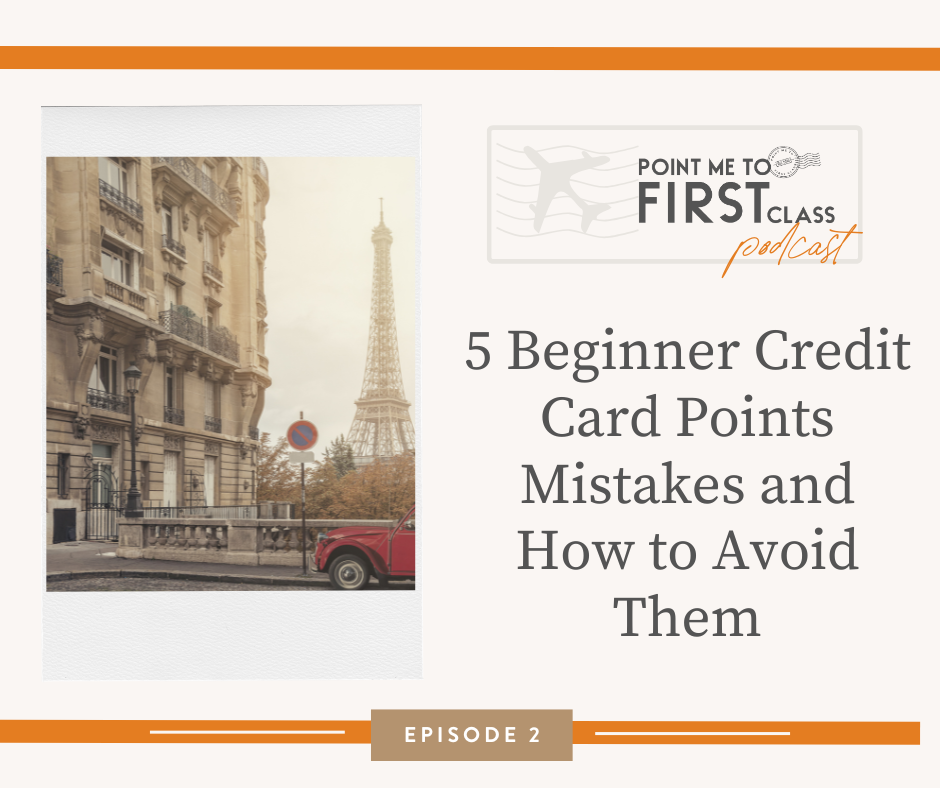March 20, 2023
5 Beginner Credit Card Points Mistakes and How to Avoid Them
Episode Description
There are five mistakes I made, and most beginners make, in the world of credit card points and travel. These were mistakes I made consistently for around four years after first dabbling in points travel. I made these mistakes so you don’t have to, and I’m sharing them all in this week’s episode.
Not repeating even just one of these mistakes will put you lightyears ahead of where I was in the early days, and if you can skip these altogether, you’ll be earning points faster than you ever thought possible.
Tune in this week to discover the five most common mistakes people make when they enter the world of credit card points and reward travel, and how you can avoid all of them. I’m sharing how you might be leaving points on the table, costing yourself an astronomical amount in interest, and some places you can utilize and leverage your rewards credit cards that might surprise you.
What You’ll Learn from this Episode
- The biggest mistake people make with credit card points, and why it isn’t just beginners that fall into this trap.
- Why it’s vital to never carry a balance on a rewards credit card.
- How to take advantage of the numerous points deals on offer.
- Some specific things you can pay for using a credit card.
- How, sometimes, it makes sense to use your rewards credit card, even if it means you need to pay a fee to do so.
- Why you need more than just one or two rewards credit cards to maximize the points available to you.
Featured on the Show:
- To celebrate the launch of the show and to help get the podcast into as many ears as possible, I’m giving away 100 travel-related prizes for my first 100 honest reviews! All you have to do is follow, rate, and review the show during the next two weeks. Click here to learn more and enter now!
- Chase Sapphire Reserve Credit Card
Click here to download full episode transcript

Enjoy the Show?
- Don’t miss an episode, follow the podcast on Apple Podcasts, Spotify, Stitcher, or RSS.
- Leave me a review in Apple Podcasts.
Point Me to First Class is the show for professionals and business owners with higher-than-average personal or business expenses, who want to learn to leverage these expenses into credit card points they can spend on travel.
Each week, I share valuable tips, tools, and strategies to help you uplevel your skills earning and redeeming credit card points, so you can expand your travel and expand your experiences.